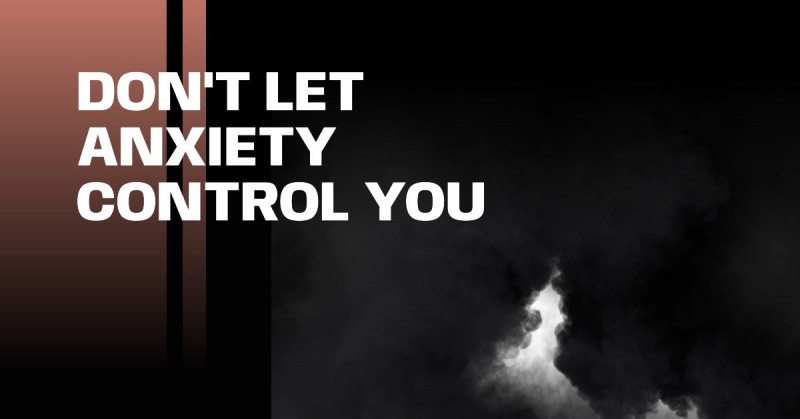
Anxiety is a common mental health condition that affects millions of people worldwide. While some individuals are open about their anxiety and seek help, others choose to hide it, either due to fear, stigma, or a desire to appear strong. However, hiding anxiety can have detrimental effects on one's well-being. In this article, we will explore five indications that you are hiding your anxiety and shed light on the importance of recognizing and addressing these hidden emotions.
What is hidden anxiety?
Hidden anxiety refers to the concealment of anxious feelings and thoughts by individuals. It involves presenting a calm and composed exterior while experiencing intense inner turmoil. Hidden anxiety can manifest differently in each person, making it challenging to identify without careful observation and understanding.
Why do people hide their anxiety?
There are various reasons why individuals may choose to hide their anxiety. Some common factors include:
Anxiety can have a profound impact on the body, leading to several physical symptoms. Here are some signs that may indicate hidden anxiety:
Restlessness and fidgeting
People with hidden anxiety often find it challenging to sit still or relax. They may constantly fidget, tap their feet, or exhibit restless behaviors as a way to release nervous energy.
Increased heart rate and palpitations
Anxiety triggers the body's "fight or flight" response, leading to an increased heart rate and palpitations. Individuals with hidden anxiety may experience these physical sensations even when there is no apparent threat or danger.
Difficulty sleeping or insomnia
Anxiety can disrupt sleep patterns, making it difficult to fall asleep or stay asleep throughout the night. Insomnia is a common symptom of hidden anxiety and can further exacerbate feelings of fatigue and irritability.
In addition to physical symptoms, hidden anxiety also manifests through emotional indicators. Here are some common emotional signs to watch out for:
Excessive worrying and overthinking
People with hidden anxiety often engage in excessive worrying and overthinking. They may constantly anticipate negative outcomes, replay past events, or obsessively plan for the future, which can lead to feelings of stress and overwhelm.
Irritability and mood swings
Anxiety can make individuals more susceptible to irritability and mood swings. Those with hidden anxiety may experience sudden shifts in emotions, becoming easily agitated or frustrated even in seemingly calm situations.
Feeling overwhelmed or panicky
Hidden anxiety can create a constant sense of being overwhelmed or on the verge of panic. Individuals may struggle with managing daily tasks or feel a persistent unease without being able to pinpoint a specific cause.
The way individuals behave can also provide insights into their hidden anxiety. Here are some behavioral clues to consider:
Avoidance of certain situations or activities
People with hidden anxiety often avoid situations or activities that trigger their anxious thoughts and feelings. They may decline social invitations, shy away from public speaking, or avoid any experiences that they perceive as potentially anxiety-inducing.
Perfectionism and excessive self-criticism
Hidden anxiety can drive individuals to set unrealistically high standards for themselves. They may strive for perfection in various aspects of life and engage in relentless self-criticism, fearing failure or judgment from others.
Social withdrawal and isolation
Anxiety can lead individuals to withdraw from social interactions and isolate themselves. People with hidden anxiety may feel anxious about socializing, worrying about judgment or criticism from others, which can result in increased social avoidance.
Hidden anxiety also affects one's cognitive processes and thought patterns. Here are some cognitive indicators to be aware of:
Racing thoughts and inability to concentrate
Anxiety can cause a stream of racing thoughts, making it difficult to focus on tasks or stay present in the moment. Those with hidden anxiety may find their minds jumping from one worry to another, impairing their ability to concentrate effectively.
Catastrophic thinking and anticipating the worst
Individuals with hidden anxiety often engage in catastrophic thinking, imagining and anticipating the worst possible outcomes. This negative thought pattern can further perpetuate anxiety and intensify feelings of fear and unease.
Negative self-talk and self-doubt
Hidden anxiety can lead to a negative internal dialogue characterized by self-doubt, self-criticism, and harsh self-judgment. Individuals may constantly question their abilities, doubt their worth, and feel unworthy of success or happiness.
Conclusion
Recognizing the indications of hidden anxiety is crucial for promoting mental well-being and providing support to those who may be struggling silently. If you or someone you know exhibits these signs, it's important to encourage open conversations about anxiety and offer non-judgmental support. Remember, seeking help from mental health professionals is essential for managing anxiety effectively.
Mastering Technical Analysis of Charting, Patterns, and Indicators in the Stock Market
The Gig Economy: Examining the Rise of Gig Work and Its Influence on the Labor Market
Remi Jones: Empowering Change Through Media and Philanthropy